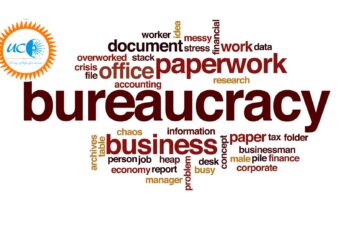Case Studies
Q. You are a young recruit to the IAS. Upon the completion of your training you have been posted in a subdividion of a district where industrial development has been lagging. The area has large reserves of minerals and a significant tribal population. The government has identified the area for a large thermal power plant and also adequate expansion of mining. This announcement has seen a rise in land prices in the area as well as unrest among the local population about possible land acquisition. As part of routine examination of records you observe large land purchases in recent years that are linked with the family of the local politician, who is also a member of the state cabinet. You also recognise that much of this land is around the site of the proposed industrial area. Further, one of your staff members also informs you that the family has been buying in the name of drivers, cleaners as well as domestic helps. You feel that having been aware of the policy decision the politician has played a role in these purchases. Incidently your relations with the politician have been cordial and he is a popular figure in the area. (a) As the official responsible for acquisition of land and payment of compensation for the land acquired, what are the ethical issues that you face in the given situation? (b) What will be your response to a suggestion that in view of these benami land transfers a freeze on land sale in the area should be enforced? (c) What is the course of action that you would take? Justify with reasons.
The rise in value of land due to policy decisions such as setting up of industry is immense. Often, the people in the know of the things beforehand devise ways to profit from this expected rise in value. This is not only illegal but also undermines public trust. In the given case, the local politician seems to have used his knowledge about the decision to set up industrial area for gaining an unfair advantage. He may have used the route of benami transactions to buy land parcels from which he may benefit later by selling them at a higher price. The stakeholders are the young IAS officer, influential local politician, tribal population directly affected by the upcoming project and the public in general.
(a) Ethical Issues involved in the above case:
- Misuse of Public Office by Minister/conflict of interest: Confidential information has been used
by the minister for personal gains which clearly violates the official oath undertaken by him and is a clear case of breach of trust entrusted to him by the public and the Constitution.
- Lack of probity in governance that leads to corruption and undermines trust in democratic institutions. Weak laws that can be bypassed easily and weak structures that do not extract accountability from people occupying positions of decision making.
- Assessment of fair value of land to establish corruption as well as to compensate the people from whom land is acquired.
- The dilemma of confronting a public official- Pursuance of public interest by charging/ investigating the politician may affect the cordial relations. This may have both personal consequences as the politician is a member of state cabinet as well as professional consequences as the working relation at local level may be compromised.
(b) The decision to acquire land for ‘ public purpose” inevitably distorts the land market and the value of the subject land. Hence the challenge is to prevent it by suitable administrative action : freezing of land transactions in the area after issuance of the land acquisition notification is one such mechanism to prevent benami sale.
However, in view of these benami land transfers, a freeze on land sale in the area can at best serve as a short-term temporary measure. By prohibiting markets, the scope of illegal action can be nipped in the bud. However, there are two issues:
1) It undermines peoples’ and markets’ ingenuity to push the land market underground, and
2) A freeze on markets undermines the right of people conduct business, which niether cannot be carried on indefinitely nor cannot be the means to resort to everytime there is a hint of illegal action by some participants in the market. The right action would be to set up an enquiry to unearth the benami transactions and identify the economic and legal offenders as per Benami Transactions Act 2016.
Benami property generates an artificial scarcity of land for developmental purposes, and increases project costs and is one of the main drivers of skyrocketing project prices. A blanket ban on sale of lands in the area would punish even the genuine deals and may affect the livelihood of tribals living in the area.
(c) Preferred course of action:
- Ensure a fair and impartial investigation by an independent committee to restore public trust in
the administration.
- Based on the report of the investigating committee, I will swiftly initiate action against the offenders so that it acts as a deterrent to such acts and law of the land is upheld. This will ensure that unnecessary gains are not made by the offenders at the cost of general public. Minister or not, an illegal act has to be punished. Also, it is my duty as a civil servant to uphold public trust and take decisions in the best interest of the people, not politicians.
- By cancelling the benami transactions, I would let the markets determine the price of the land
themselves. Compensation to land owners must be made at a rate that reflects market value.
- Since the area offers possibility for adequate expansion of mining for running the thermal power plant, it is essential that stern action against land price manipulators be taken to ensure smooth functioning of the plant in future.
- People must also be made aware of the law to prevent benami transactions as this would discourage them to sell land to those who may exploit their ignorance.
There is no question of going soft on a public representative. Lawful action must be taken without any fear or favour. In the long term, It is required that land records be digitized and transactions involving sale and purchase of land have minimal cash based transactions. Also information related to upcoming projects is managed in a need to know basis so that undue private gains are not made.











